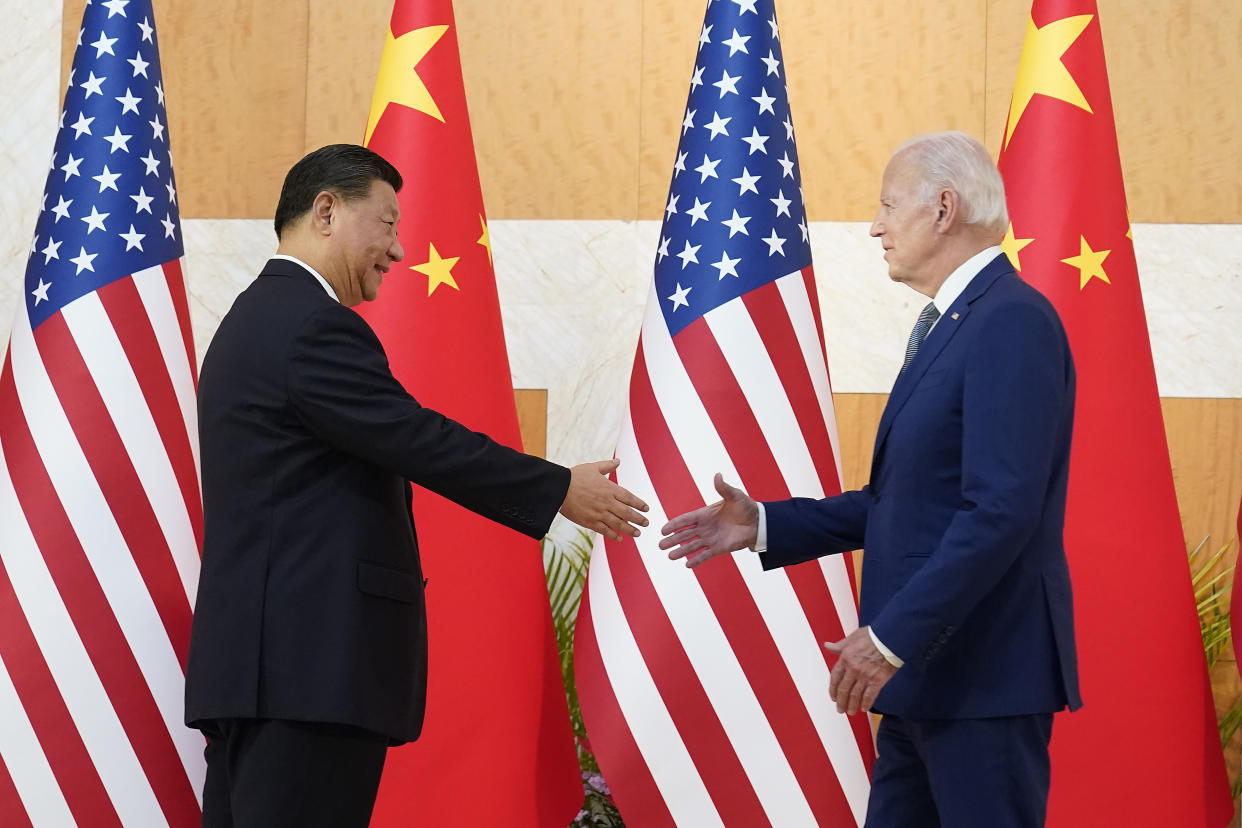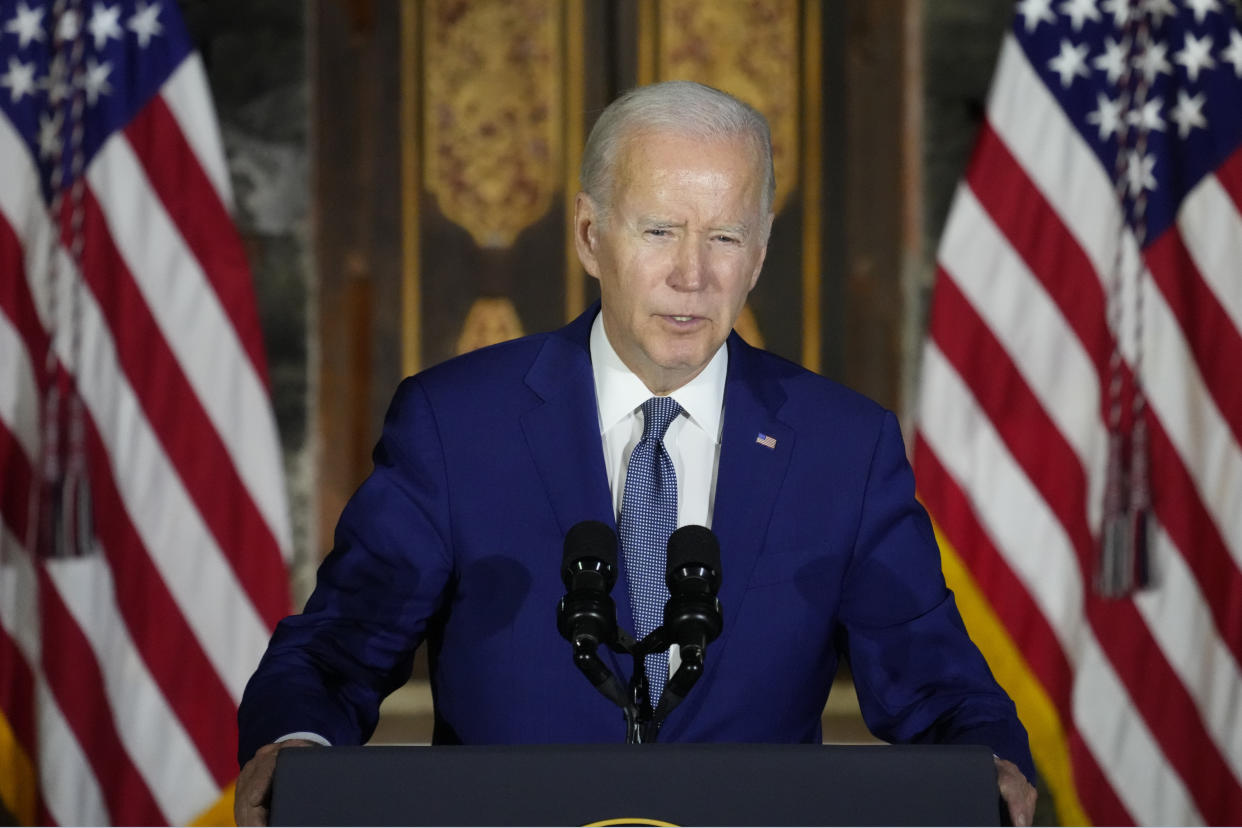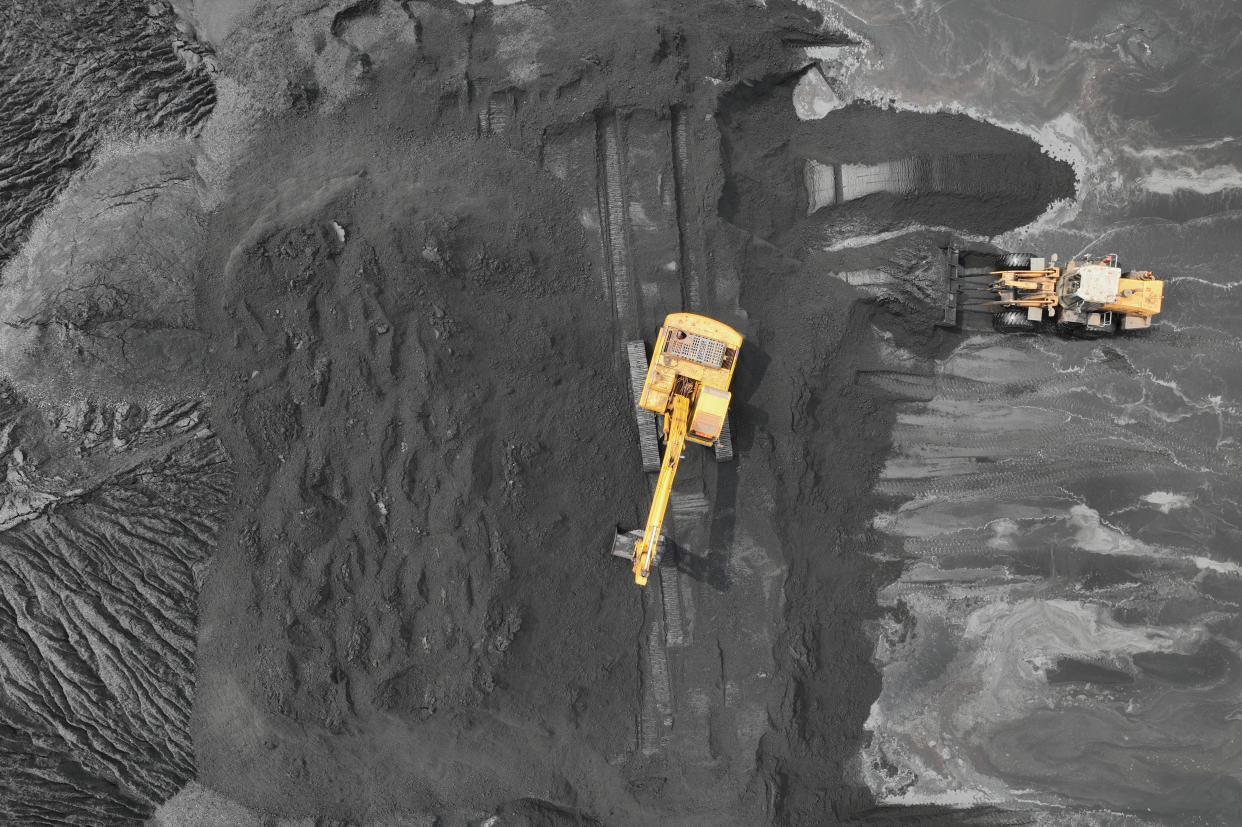Biden and Xi agree to resume cooperation on fighting climate change
After a face-to-face meeting in Bali, Indonesia, President Biden and Chinese President Xi Jinping pledged Monday morning to cooperate on issues including the fight against climate change, protecting global health and safeguarding access to food.
“The world expects, I believe, China and the United States to play key roles in addressing global challenges, from climate change to food insecurity, and … for us to be able to work together,” Biden said in his opening remarks before the meeting, which was closed to the press. “The United States stands ready to do just that — work with you — if that’s what you desire.”
The two leaders did not agree to any specific policy actions, but meetings between officials from both countries that may yield more tangible results are expected to follow. The White House announced Monday that Secretary of State Antony Blinken will make his first trip to China in the near future.

“President Biden underscored that the United States and China must work together to address transnational challenges — such as climate change, global macroeconomic stability including debt relief, health security and global food security — because that is what the international community expects,” stated a readout from the White House sent after the meeting. “The two leaders agreed to empower key senior officials to maintain communication and deepen constructive efforts on these and other issues.”
The diplomatic breakthrough comes in a year of tension between the two leading global powers, caused in part by China’s desire to regain control of Taiwan and its alliance with Russia in the wake of that country’s invasion of Ukraine.
China is by far the world’s largest emitter of greenhouse gases, which are causing temperatures to rise around the globe. The United States is the second-largest emitter and the largest cumulative historical climate polluter.
Monday’s announcement also comes at a crucial moment in the struggle to limit climate change. Almost every nation in the world is currently represented at the U.N. Climate Change Conference, known as COP27, in Sharm el-Sheikh, Egypt. When Biden addressed COP27 on Friday, he touted his record of accomplishment on combating climate change and laid out a series of small new steps the U.S. will take, including the implementation of new rules to limit methane pollution.
“In this moment of great global challenges — from global inflation to the climate crisis to Russia’s brutal war against Ukraine — we’re bringing together the broadest possible coalition of partners to deliver results,” Biden said at a press conference after his meeting with Xi.

One of the key points of contention at COP27 has been the demand by developing countries for increased aid for adapting to the consequences of climate change, and for developed countries to help provide funds to help pay for the damages already being incurred due to disasters caused by rising temperatures. In July, for instance, massive flooding worsened by the melting of mountain glaciers displaced millions of people in Pakistan.
China, under a decades-old agreement, is still considered a developing nation in the U.N. climate process, even though it has grown to be the world’s second-largest economy, after the U.S. While China is not asking for climate aid, Xi reiterated that it will provide climate aid to poorer countries only on its own terms and will not begin contributing to joint climate funds that the U.S., the European Union and other rich nations support.
U.S. environmental activists nonetheless praised the U.S. and China for meeting and attempting to set aside their differences.
“This unequivocal signal from the two largest economies to work together to address the climate crisis is more than welcome, it’s essential,” said Natural Resources Defense Council CEO Manish Bapna. “The world needs every country at the table, striving to deliver on solutions that curtail the use of fossil fuels and sharply accelerate investment in clean energy, as well as take steps to reform international financing institutions so they pump more resources into climate action and to address crushing debt in developing countries impeding their move to clean economies. The window to hold global temperature rise to 1.5 degrees — and avoid the worst damage from climate change — is closing fast. We urge the world’s two major economies to act with speed and conviction to meet the challenge of the moment.”

Despite the optimism emanating from the meeting, it is worth noting that last year, at COP26 in Glasgow, Scotland, the U.S. and China made a joint announcement with more specific pledges of cooperation on climate change, including a pledge by both countries to reduce their emissions of methane, an especially potent greenhouse gas and a growing source of emissions.
No similar announcements have come from the two countries during this year’s climate change conference, and no formal negotiations between the two have taken place. However, a Biden administration official told the New York Times on Monday that John Kerry, Biden’s special envoy for climate, who is leading the U.S. delegation in Sharm el-Sheikh, has met at least seven times with his Chinese counterpart, Xie Zhenhua. The conference began a week ago and is scheduled to run through this Friday.

